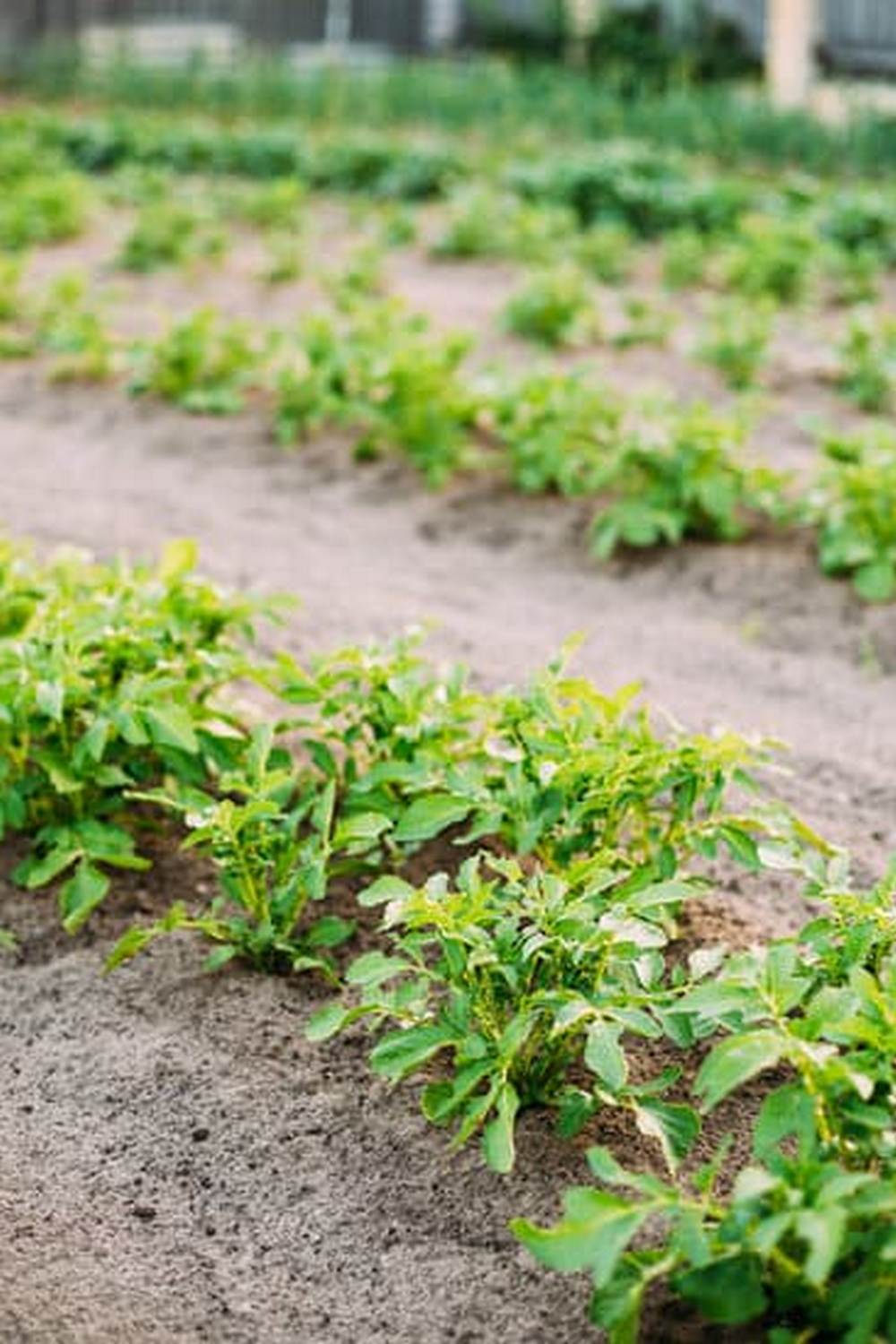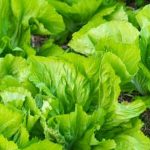In today’s fast-paced world, where the demand for bountiful harvests is ever-increasing, the use of chemicals in vegetable gardens has become a common practice. However, ensuring the safety of these products should be a top priority for gardeners. This article delves into the topic of using Roundup safely in vegetable gardens, shedding light on its potential risks and providing alternatives for a healthier gardening experience.
Roundup, a popular herbicide containing glyphosate as its active ingredient, is widely used for weed control in agricultural and residential settings. While it can be effective in eliminating unwanted vegetation, there are concerns about its impact on human health and the environment. Understanding how to use Roundup safely in vegetable gardens is essential to minimize any potential harm that may arise from its usage.
As we explore the risks associated with using Roundup in vegetable gardens, it is crucial to consider alternative methods for managing weeds without compromising safety. By incorporating organic practices such as mulching, hand weeding, and using natural herbicides, gardeners can maintain a healthy and thriving vegetable garden without relying on potentially harmful chemicals like Roundup.
What Is Roundup
Roundup is a popular herbicide product commonly used for weed control in various settings, including vegetable gardens. It contains glyphosate as its active ingredient, which targets unwanted plants by inhibiting an essential enzyme needed for growth. While Roundup can be effective in eliminating weeds, there is a growing concern about its safety and potential risks when used in vegetable gardens.
One of the main issues with using Roundup in vegetable gardens is the potential for contamination of the soil and crops with harmful chemicals. Glyphosate has been linked to health problems in humans, such as cancer and other serious conditions. Additionally, there is a risk of Roundup leaching into groundwater sources and harming beneficial organisms in the soil, thus impacting the overall health of the garden ecosystem.
Given these risks, many gardeners are seeking safe and effective alternatives to Roundup for weed control in their vegetable gardens. Some common alternatives include organic herbicides made from natural ingredients like vinegar or essential oils, mechanical methods like hand weeding or mulching, and using cover crops to suppress weed growth. By choosing these alternatives, gardeners can maintain a healthy and thriving garden without compromising on safety.
| Risks of Using Roundup in Vegetable Gardens | Alternatives to Roundup |
|---|---|
| Glyphosate contamination of soil and crops | Organic herbicides made from natural ingredients |
| Health risks associated with glyphosate exposure | Mechanical methods like hand weeding or mulching |
| Potential harm to soil organisms and ecosystem | Using cover crops to suppress weed growth |
Risks of Using Roundup in Vegetable Gardens
Roundup, a popular herbicide produced by the company Monsanto, is commonly used for weed control in gardens and agricultural fields. While it can be effective in eliminating unwanted plants, there are potential risks associated with using Roundup in vegetable gardens. One of the main concerns is the active ingredient in Roundup, glyphosate, which has raised questions about its safety for use around edible plants.
Here are some of the risks and dangers to consider when using Roundup in your vegetable garden:
- Health Risks: Exposure to glyphosate has been linked to various health issues, including cancer and reproductive problems. It is important to take precautions when using Roundup and avoid direct contact with the chemical.
- Contamination of Produce: There is a risk of residue from Roundup remaining on the plants and seeping into the soil. This can potentially contaminate your vegetables and pose a threat to human health if ingested.
- Environmental Impact: Roundup has been shown to have harmful effects on beneficial insects, soil microbes, and other organisms in the ecosystem. Using this herbicide can disrupt the balance of your garden’s ecosystem.
To minimize these risks, it is essential to explore safe alternatives to Roundup for weed control in vegetable gardens. Consider using natural methods such as mulching, hand weeding, or homemade organic herbicides. These alternatives are not only safer for you and your plants but also promote a healthier gardening environment overall. By opting for non-toxic weed control methods, you can better protect your health and the well-being of your vegetable garden.
Alternatives to Roundup
Roundup has long been a popular choice for weed control in vegetable gardens due to its effectiveness. However, concerns have been raised about the potential risks associated with using Roundup in such environments. As gardeners become more conscious of the chemicals they are using, exploring safe and effective alternatives to Roundup has become a priority for many.
When it comes to weed control in vegetable gardens, there are several alternatives to Roundup that can be just as effective without posing potential risks to your health or the environment. Consider trying the following safe options:
- Organic herbicides: Look for products that use ingredients like vinegar, citric acid, or clove oil to effectively kill weeds without harmful chemicals.
- Mulching: Covering the soil around your plants with mulch can help prevent weeds from sprouting by blocking sunlight and hindering their growth.
- Hand weeding: While it may require more effort, manually removing weeds by hand is a safe and environmentally friendly method of weed control.
These alternatives not only provide effective weed control but also ensure that your vegetable garden remains free from potentially harmful chemicals. By incorporating these methods into your gardening routine, you can promote a healthier and safer environment for both yourself and your plants.
When considering alternatives to Roundup for weed control in your vegetable garden, it’s important to prioritize safety and environmental consciousness. By making informed choices about the products you use in your garden, you can create a thriving space that is not only free from weeds but also safe for you and your family.
Tips for Using Roundup Safely in Vegetable Gardens
When considering using Roundup in vegetable gardens, it is crucial to prioritize safety and responsible usage. Roundup is a popular herbicide known for its effectiveness in controlling weeds, but it is important to be aware of the potential risks associated with its use. While many gardeners may opt for Roundup due to its convenience and efficiency, it is essential to understand proper guidelines for using this product safely to minimize any adverse effects on both the environment and human health.
One key aspect of using Roundup safely in vegetable gardens is following the manufacturer’s instructions carefully. It is important to read and understand the label on the product, which provides information on proper application methods, dosage, and safety precautions.
Additionally, wearing appropriate protective gear such as gloves, long sleeves, pants, closed-toe shoes, and goggles can help reduce exposure to the herbicide during application. Ensuring that there is no wind or rain when applying Roundup can also prevent drift or runoff that could potentially harm other plants or contaminate water sources.
Furthermore, consider using spot treatments rather than blanket applications when using Roundup in vegetable gardens. Targeting only the specific weeds that need to be removed can minimize overall usage of the product and reduce any risk of harming desirable plants nearby.
Another alternative worth exploring is utilizing organic weed control methods such as mulching, hand-weeding, or natural herbicides made from ingredients like vinegar or essential oils. These alternatives are not only safer for the environment but also contribute to maintaining soil health in vegetable gardens.
| Safe Usage Tips | Details |
|---|---|
| Follow Manufacturer’s Instructions | Read labels carefully for proper application methods and safety precautions. |
| Wear Protective Gear | Use gloves, goggles, long sleeves, pants, and closed-toe shoes during application. |
| Consider Spot Treatments | Target specific weeds instead of applying broadly across the garden. |
How to Detoxify Soil After Using Roundup
Testing the Soil
Before planting any vegetables in a garden where Roundup has been used, it is important to test the soil for any remaining traces of the herbicide. This can be done by sending a sample of the soil to a lab for analysis. The results will indicate if there are any residues of Roundup present and at what levels. Knowing this information is crucial for determining the steps needed to detoxify the soil effectively.
Adding Organic Matter
One way to help remove Roundup residue from the soil is by adding organic matter such as compost or manure. Organic matter can help break down any remaining herbicide and promote microbial activity in the soil, which can aid in detoxifying it naturally. Be sure to thoroughly mix the organic matter into the soil and allow time for it to work its magic before planting any vegetables.
Planting Cover Crops
Another effective method for detoxifying soil after using Roundup is to plant cover crops. Certain plants like clover, alfalfa, or sudangrass have deep root systems that can help break up compacted soil and absorb any leftover chemicals. These cover crops not only detoxify the soil but also improve its overall health and fertility. Allow cover crops to grow for a season before tilling them under to further aid in removing Roundup residue from the soil.
By following these steps and taking proactive measures to detoxify the soil after using Roundup, gardeners can ensure that their vegetable gardens are safe and healthy for growing produce without any harmful chemical residues affecting their crops or impacting their health. It is essential to prioritize safety when using herbicides like Roundup and take precautions to mitigate any potential risks associated with their use in vegetable gardens.
Best Practices for Maintaining a Healthy Vegetable Garden
Maintaining a healthy vegetable garden goes beyond just using safe products like Roundup. While weed control is important, there are several other factors to consider to ensure the success and safety of your vegetable garden. By incorporating best practices into your gardening routine, you can create a thriving and sustainable garden for years to come.
Proper Soil Preparation
One key factor in maintaining a healthy vegetable garden is ensuring that your soil is well-prepared. Before planting, it’s essential to test the soil pH and nutrient levels to determine if any amendments are needed. Adding organic matter like compost or aged manure can improve soil structure and fertility, providing a better environment for your vegetables to grow. Additionally, practicing crop rotation can help prevent disease build-up and maintain soil health over time.
Watering Techniques
Watering your vegetable garden properly is crucial for plant growth and development. Different vegetables have varying water requirements, so it’s essential to understand the needs of each type of crop you are growing. Generally, it’s best to water deeply but infrequently to encourage deep root growth and prevent issues like root rot. Utilizing mulch around plants can help retain moisture in the soil and reduce water evaporation, ultimately promoting healthier plants.
Pest Control Methods
In addition to weed control, managing pests in your vegetable garden is vital for maintaining plant health. Instead of relying solely on chemical pesticides like Roundup, consider implementing integrated pest management (IPM) techniques.
This approach involves using various methods such as beneficial insects, traps, physical barriers, and biological controls to keep pest populations in check without harming beneficial insects or posing risks to human health. By diversifying your pest control methods, you can effectively protect your crops while minimizing environmental impact.
By adopting these best practices alongside utilizing safe products such as Roundup in vegetable gardens responsibly, you can establish a healthy and productive garden that provides bountiful harvests without compromising safety or sustainability. Remember that cultivating a successful vegetable garden requires careful attention to various factors beyond just weed control-aiming for holistic gardening practices will benefit both your plants and the surrounding ecosystem in the long run.
Conclusion
In conclusion, it is essential to prioritize safety when using chemicals in vegetable gardens. While Roundup may be a commonly used herbicide, it comes with potential risks and dangers, especially when not used properly. Understanding these risks and exploring safe alternatives for weed control can help gardeners make informed decisions to protect their health and the environment.
When considering using Roundup in vegetable gardens, it is crucial to follow guidelines for safe usage provided by the manufacturer. This includes wearing protective gear, applying the product in the correct conditions, and avoiding drift onto desirable plants. By taking these precautions, gardeners can minimize the potential harm that Roundup may pose to themselves or their crops.
Additionally, after using Roundup in a vegetable garden, it is important to take steps to detoxify the soil and remove any residues of the herbicide before planting new crops. This will help ensure that vegetables grown in the garden are safe for consumption.
By implementing best practices for maintaining a healthy vegetable garden, such as proper watering, crop rotation, and soil testing, gardeners can further promote a successful and safe growing environment. Remembering to prioritize safety throughout all stages of gardening will ultimately lead to a bountiful harvest of healthy and nutritious vegetables free from harmful chemicals like Roundup.
Frequently Asked Questions
Is It Safe to Use Roundup in a Vegetable Garden?
Using Roundup in a vegetable garden is a controversial topic. While the manufacturer claims it breaks down quickly and does not harm plants, there are concerns about potential health risks associated with glyphosate, its active ingredient.
Can You Eat a Plant Sprayed With Roundup?
Eating a plant sprayed with Roundup is generally considered safe once the product has dried. However, it is recommended to wait a few days after application before consuming any treated plants to minimize exposure to residual chemicals.
How Long Does Roundup Stay in the Soil?
The duration of Roundup’s presence in the soil depends on various factors such as weather conditions, soil composition, and application rates. Generally, glyphosate can persist for several months to years, but degradation can occur faster under ideal conditions. Properly following label instructions can help minimize its environmental impact.

If you’re looking to get into vegetable gardening, or are just looking for some tips on how to make your current garden better, then you’ve come to the right place! My name is Ethel and I have been gardening for years. In this blog, I’m going to share with you some of my best tips on how to create a successful vegetable garden.





